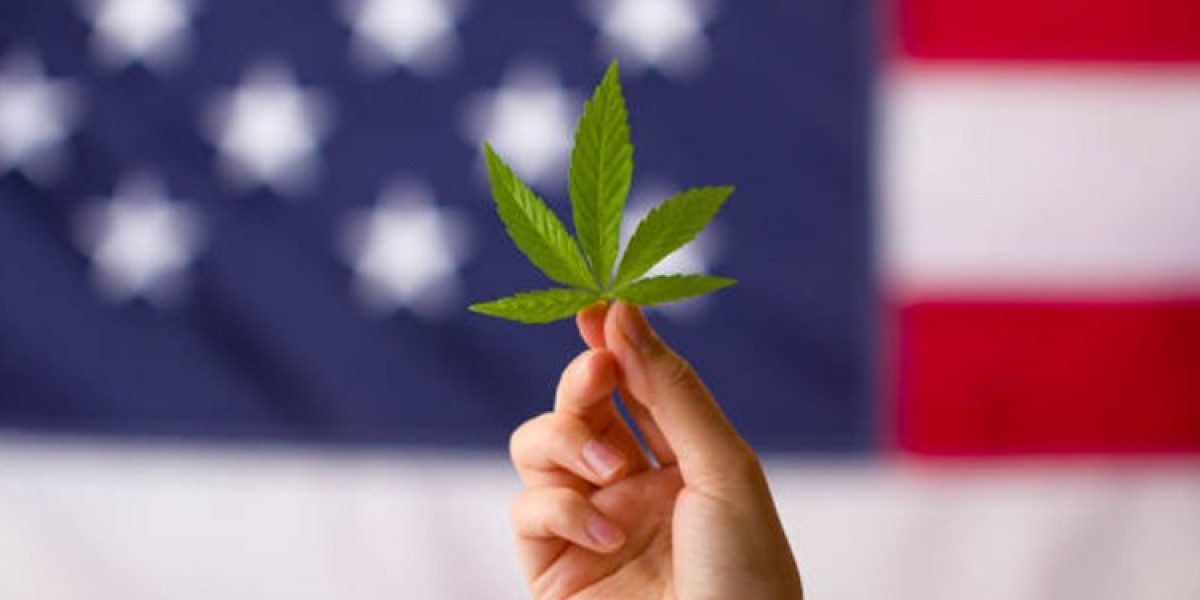In recent years, cannabis has undergone a significant transformation from a widely prohibited substance to one that is increasingly accepted and legalized across various parts of the world. The global landscape of cannabis legalization is diverse, reflecting different cultural attitudes, legal frameworks, and approaches to regulation. In this blog, we'll explore the key regions where cannabis is legal, highlighting the differences in laws and the broader implications of this evolving trend.
1. North America: Pioneers of Legalization
United States In the United States, cannabis legalization is a patchwork of state laws. As of 2024, 23 states and Washington, D.C., have legalized recreational cannabis, while 38 states have legalized it for medical use. States like Colorado, California, and Oregon were among the first to embrace legalization, with regulated markets for both medical and recreational cannabis. In places like Brooklyn, New York, the emergence of a "weed store in Brooklyn" has become increasingly common, reflecting the local embrace of legalization. However, cannabis remains illegal under federal law, creating a complex legal environment where state and federal regulations often conflict.
Canada Canada made history in 2018 by becoming the first G7 nation to fully legalize cannabis for both medical and recreational use. The Cannabis Act allows adults to purchase cannabis from licensed retailers and grow a limited number of plants at home. Canada's approach emphasizes public health and safety, with strict regulations on advertising and product quality.
2. South America: A Progressive Approach
Uruguay Uruguay was the first country in the world to fully legalize cannabis in 2013. Under this model, the government regulates the production and distribution of cannabis, allowing citizens to purchase it from pharmacies, grow it at home, or join a cannabis club. Uruguay's approach is rooted in public health and harm reduction, aiming to eliminate the black market and reduce drug-related crime.
Colombia Colombia has also taken steps toward cannabis legalization, particularly for medical purposes. The country has established a regulated market for medical cannabis, with a focus on exporting cannabis products to international markets. However, recreational use remains illegal, although it has been decriminalized for small amounts.
3. Europe: A Patchwork of Policies
Netherlands The Netherlands is famous for its tolerant approach to cannabis, particularly in Amsterdam, where "coffeeshops" are allowed to sell small amounts of cannabis for personal use. While technically illegal, the sale and use of cannabis in these establishments are tolerated under a policy of non-enforcement. However, large-scale production and distribution remain illegal, leading to a gray market that the government has begun to regulate more closely in recent years.
Germany Germany is poised to become the largest legal cannabis market in Europe, with plans to legalize recreational use by 2024. Medical cannabis has been legal since 2017, and the country has a well-established market for medical cannabis products. The move toward full legalization is seen as a significant shift in European drug policy, potentially influencing other EU countries.
Spain In Spain, cannabis is decriminalized for personal use and cultivation in private spaces. The country is known for its cannabis social clubs, where members can grow and share cannabis among themselves. These clubs operate in a legal gray area, with varying degrees of tolerance depending on the region.
4. Oceania: Slow but Steady Progress
Australia Australia has gradually embraced medical cannabis legalization, with all states and territories allowing its use under prescription since 2016. In 2020, the Australian Capital Territory (ACT) became the first jurisdiction to legalize the personal use and cultivation of small amounts of cannabis. However, the rest of the country remains cautious, with recreational use still illegal at the federal level.
New Zealand In New Zealand, medical cannabis was legalized in 2018, providing patients with access to cannabis-based products. A 2020 referendum on legalizing recreational cannabis narrowly failed, indicating a cautious approach to broader legalization. However, the debate continues, with growing public support for reform.
5. Asia: Strict Laws, But Shifting Attitudes
Thailand Thailand made headlines in 2018 by becoming the first Southeast Asian country to legalize medical cannabis. In 2022, the country further expanded its cannabis laws, allowing households to grow a limited number of plants and decriminalizing the possession of small amounts. Thailand's approach is unique in a region known for its strict drug laws and harsh penalties.
Israel Israel is a global leader in cannabis research and has a well-established medical cannabis program. While recreational use is illegal, the country decriminalized possession in 2017, and there are ongoing discussions about full legalization. Israel's medical cannabis industry is highly regulated, with a focus on research and development.
6. Africa: Emerging Markets and Legalization Efforts
South Africa In 2018, South Africa's Constitutional Court ruled that the personal use and cultivation of cannabis in private spaces is legal. This landmark decision paved the way for further legalization efforts, with ongoing discussions about creating a regulated market for both medical and recreational cannabis. South Africa's approach reflects a growing trend across the continent toward decriminalization and legalization.
Lesotho Lesotho was the first African country to issue licenses for the cultivation of medical cannabis in 2017. The country has positioned itself as a key player in the global cannabis market, with a focus on exporting medical cannabis products. Lesotho's climate and geography make it an ideal location for cannabis cultivation, and the industry has become a significant economic driver.
Conclusion: A Global Shift Toward Legalization
The global landscape of cannabis legalization is dynamic and rapidly evolving. While some countries have fully embraced legalization, others are taking cautious steps, focusing on medical use and decriminalization. The trend toward legalization reflects broader shifts in public attitudes, with increasing recognition of the potential benefits of cannabis for medical, economic, and social purposes.
As more countries explore the possibilities of cannabis legalization, the global market is set to expand, offering new opportunities and challenges. Whether driven by public health, economic incentives, or social justice, the movement toward cannabis legalization is a clear indication that the world is rethinking its approach to this once-taboo plant.







